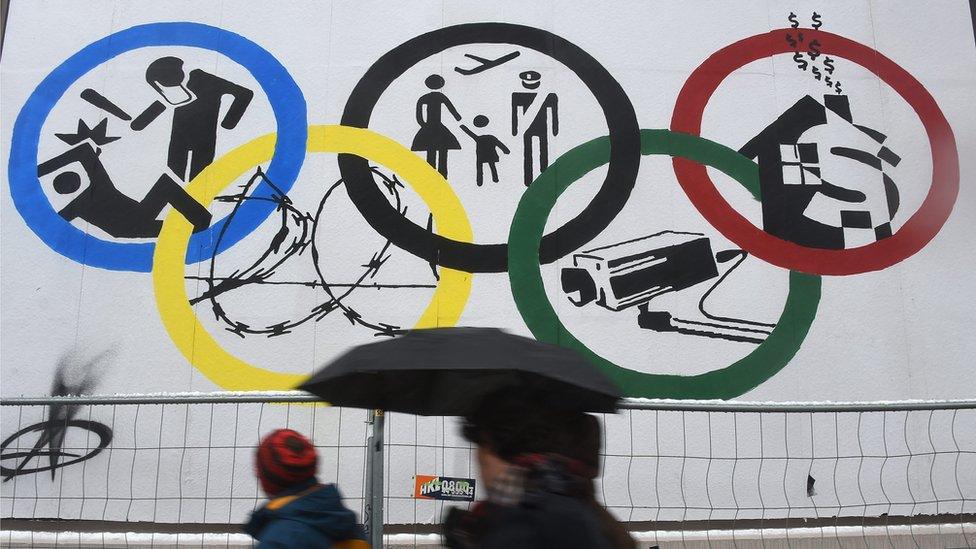Rome 2024 Olympic bid collapses in acrimony
- Published
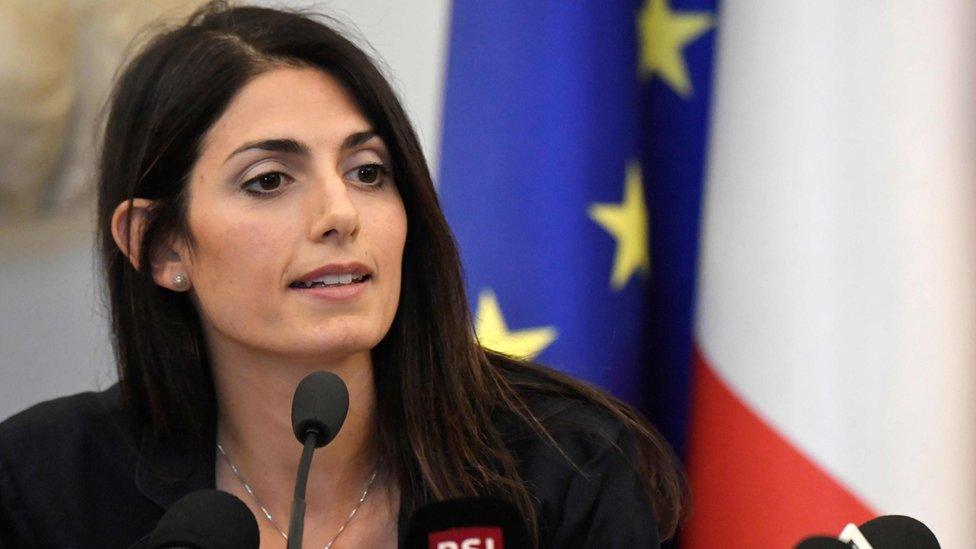
Virginia Raggi told reporters that she was not prepared to allow the city to sink further into debt
Rome is set to drop its bid to host the Olympic Games in 2024, after its anti-establishment mayor said it would be "irresponsible" to be a candidate.
Virginia Raggi of the Five Star movement was elected in June.
Her decision was a blow for the city's Olympic committee which had hoped to change her mind. But officials said she had failed to turn up to a meeting.
Rome last hosted the Games in 1960 and also pulled out of the bidding for the 2020 Olympics for financial reasons.
Boston and Hamburg have already dropped out of the running for the 2024 Games. Germany has not hosted a games since 1972, and Hamburg's decision to pull out was made in a referendum.

The Rome Olympic Committee said a great chance had been lost for the city
Paris, Los Angeles and Budapest are still vying to host the Games. The remaining candidates must confirm their application and the endorsement of local public leaders by 7 October.

Why Raggi said no: James Reynolds, BBC News, Rome
In ancient times here, Roman emperors offered the thrill of bread and circuses to appease and divert a restless population.
That tactic, it seems, no longer works. These days, Rome is a city which can barely pick up its own rubbish.
Among many Romans, the idea of hosting an Olympic Games hasn't provoked much enthusiasm.
The new mayor knows that. She comes from the populist Five Star Movement, which has strongly opposed a bid for the Games.
Ms Raggi has had a difficult first few weeks in power. Her tenure has been overshadowed by accusations of mismanagement and cover-ups. Rejecting the Olympics may be her way of winning back popularity and asserting her own authority over the city.
More from James: Raggi finds it tough at the top
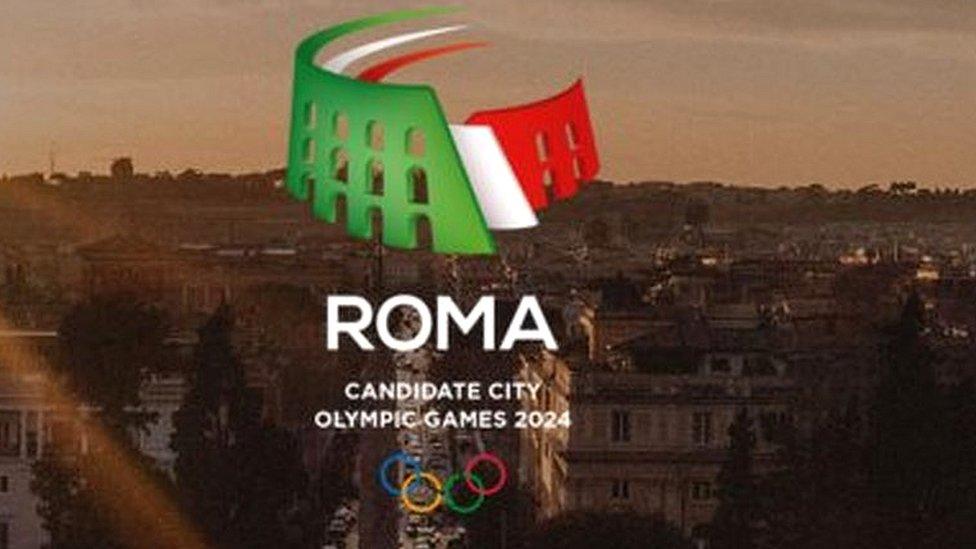
The Rome bid was proposing to centre the Games around some of the city's monuments

'No to the Games of concrete'
Ms Raggi came to power after repeatedly saying she opposed the 2024 bid, but there had been hopes that she might agree to a local referendum.
The head of the Italian Olympic Committee, Giovanni Malago, had already indicated that without her support the bid would not go ahead and he said after the mayor's announcement that her decision hurt. "It was possible to do this, and do it well," he insisted.
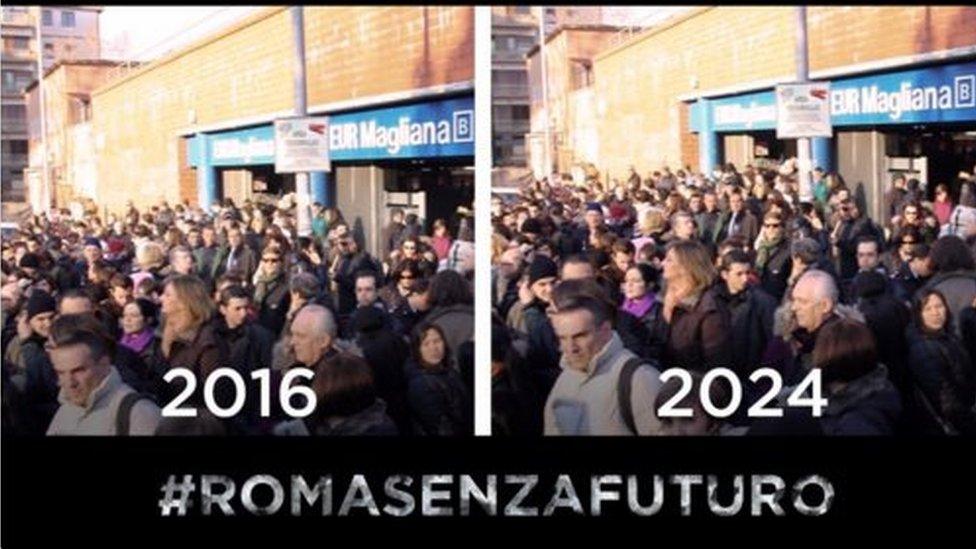
The Rome Olympic bid campaign sent out tweets bemoaning the loss of huge sums of investment in transport
The Roma 2024 committee issued a statement saying they were "profoundly surprised and disappointed".
They were disappointed "that a new political force is unwilling to accept the challenge of modernisation," it said, claiming that the Games would have boosted Rome's economy by $1.7bn (£1.3bn; €1.5bn).
But Ms Raggi disagreed. "We are effectively asking the people of Rome and of Italy to shoulder the debts. We just don't support it," she told reporters.
"No to the Olympics of concrete, absolutely not! No to cathedrals in the desert," she said, suggesting that Rome would have been left with redundant sports facilities.
The mayor said Rome was still paying out for the last time it held the Games in 1960.
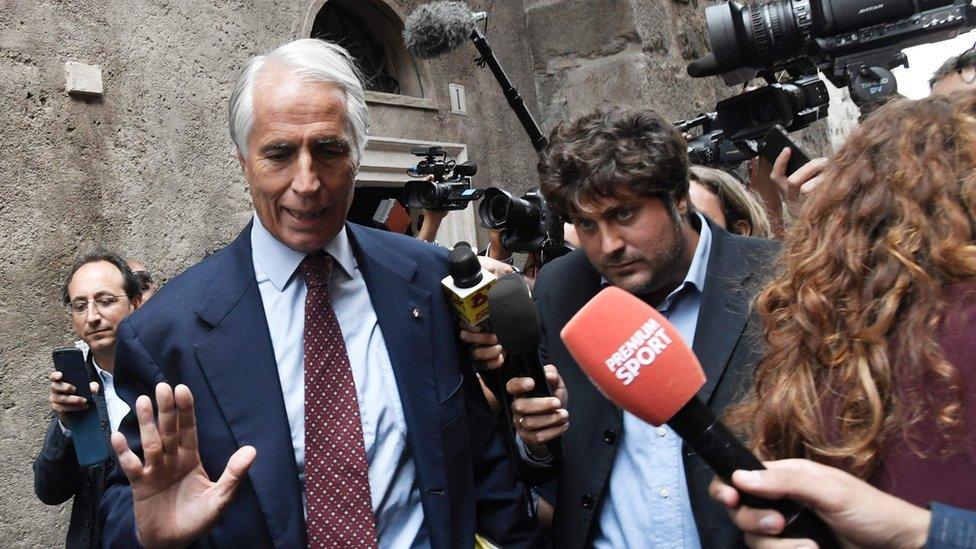
Giovanni Malago (L) was left waiting for a meeting with the mayor, who failed to turn up
The International Olympic Committee will elect the host at a vote in Lima, Peru, in September 2017, with Paris considered the favourite after unsuccessfully bidding for the 1992, 2008 and 2012 Games.

How much does it cost to host the Olympics?
Rome bid officials set a budget of €5.3bn (£4.5bn; $6bn) to host the Games, with a plan to use existing venues for 70% of the sites.
That was a template used by Los Angeles in 1984, when existing stadiums and other facilities were used and the Games made a profit. LA's projected 2024 budget is $4.52bn, with a hoped-for profit of $150m.
But most cities have made a loss. The 2004 Athens Games cost almost €9bn and increased Greece's public debt.
The 2016 Rio Games cost an estimated $12bn.
London 2012 went three times over budget and cost £8.77bn ($11.4bn), although the event boosted trade and investment by an estimated £9.9bn.
- Published8 September 2016
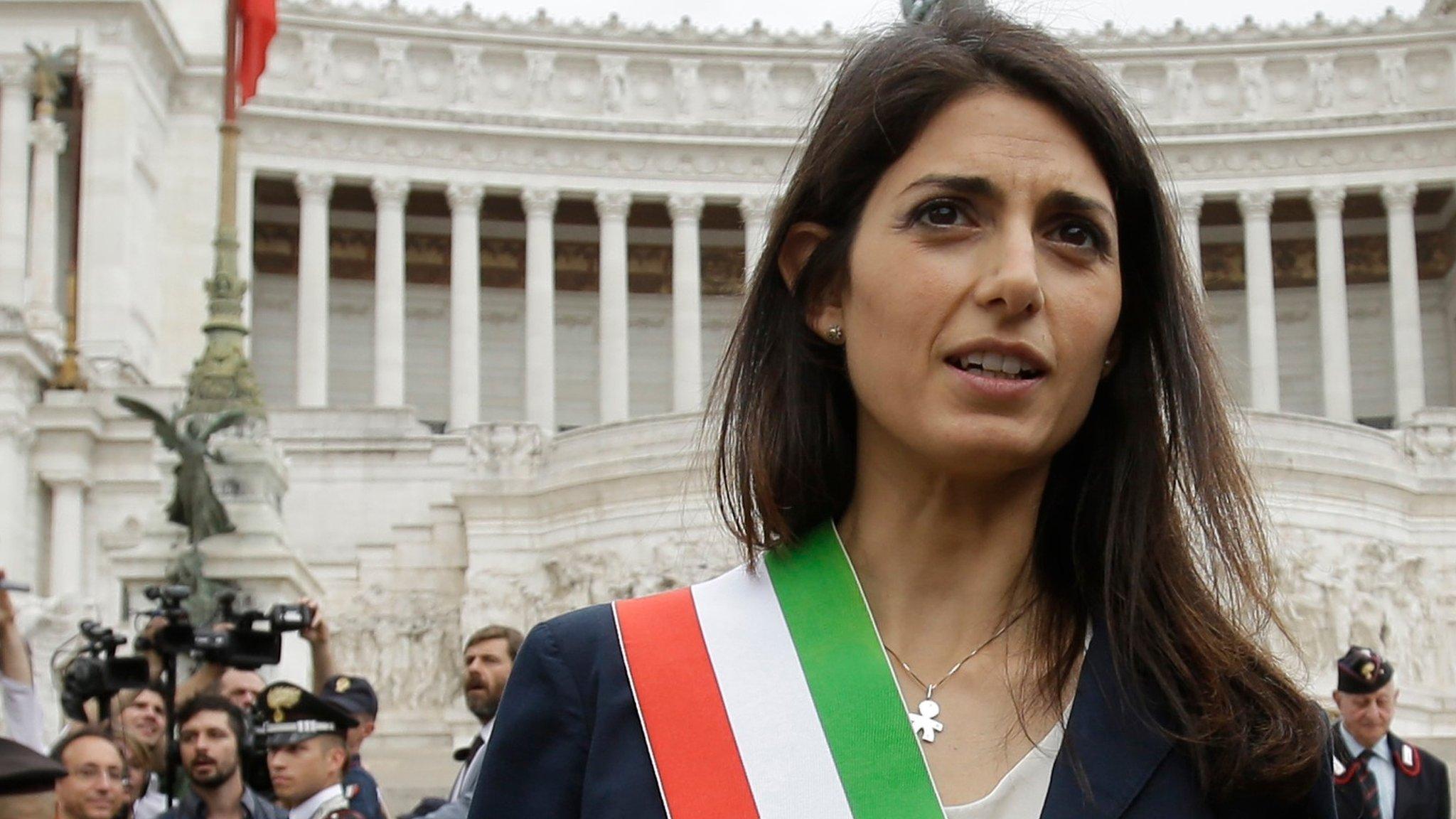
- Published30 November 2015
